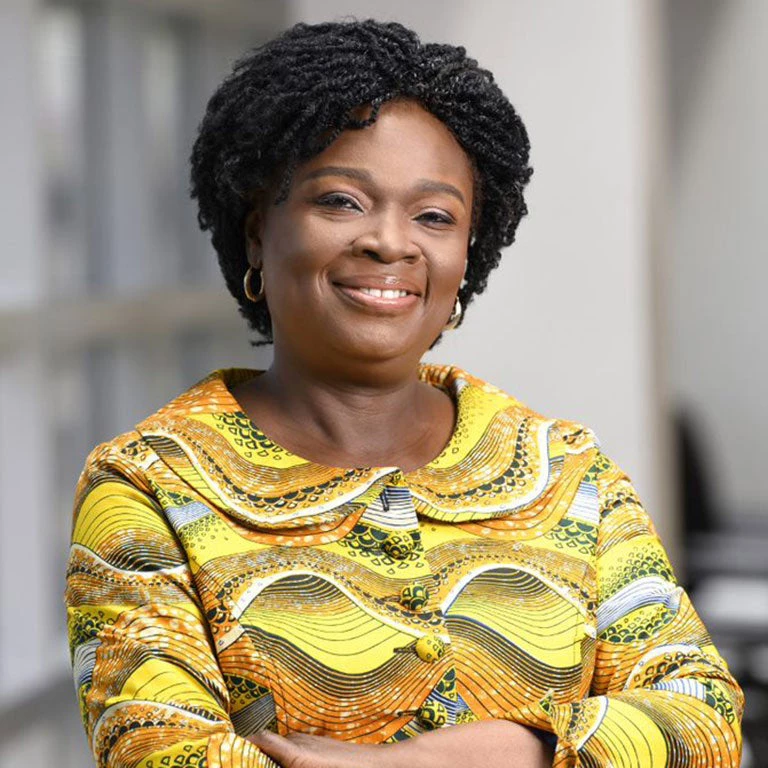 World Bank
World Bank
As the plane descended towards Burundi on my recent trip, the vibrant hues of emerald-green hills that encircle Bujumbura, the capital city, took my breath away. That very first glimpse from the aircraft hinted at the vibrance that awaited me on the ground. Burundi, once synonymous with political turmoil, has made progress to consolidate peace-building since the political unrest of 2015, and is transforming into a land bursting with potential, pristine roads and soil ripe to deliver opportunities for prosperity.
I was particularly heartened by the impact that our concessional financing, IDA, is having on the lives of ordinary people in the areas of social protection, energy access, and landscape restoration.
Lifting the Vulnerable through Social Protection
A profound moment unfolded in Mahwa, Gitega province, where I had the privilege of engaging with women who had benefited from a social protection pilot project. These women, drawn from among the most vulnerable in the country, had received a modest sum of $12 per month and undergone training that helped them take advantage of business opportunities.
The result? A metamorphosis from vulnerability to entrepreneurship. These remarkable women now spearhead activities that generate income and create jobs which have granted their families the gift of a dignified life. Their resilience serves as a poignant reminder of the privilege we hold in doing this work to combat extreme poverty.
Building on this success, the World Bank approved the larger Cash4Jobs Project (Merankabandi II) last year, aimed at fortifying social protection management capacity, scaling up safety net programs, championing inclusion and access to jobs – all across the nation. Through a dynamic blend of cash transfers, human development initiatives, and productive inclusion programs, the project aspires to elevate 200,000 households from the grips of poverty. This represents a remarkable 25% of the country’s most impoverished, including refugees, host communities, and those devastated by crises.
Building the Pathways for Energy Access
In a country where only 13% of the population have access to electricity, a revolutionary transformation is underway. Burundi has undertaken substantial investments in renewable-based electricity generation and transmission, with regional interconnection networks supported generously by development partners, including the World Bank. It has opened the sector to private sector participation and is working hard on difficult reforms of the public utility—REGIDESO.
The eagerly anticipated full commissioning of the Regional Rusumo Falls hydropower plant in September 2023, with 80 MW of power, of which 26.7 MW will be dedicated to Burundi, will herald the end of exorbitant thermal generation. Further intensifying this increase in energy capacity is the construction of the Jiji and Mulembwe Hydropower Project, slated to augment the country’s installed capacity by 50%, adding 49 MW in the next two years.
This increase in capacity is aligned with the Government of Burundi’s ambition to reach universal electricity access by 2030. To realize this goal, private sector financing, especially in power generation and distribution, will be critical. Additional financing would complement ongoing reforms, strategic planning, and regulation of the energy sector – the prerequisites for building a sustainable power sector in Burundi.
Nurturing Nature: The Quest for Land Restoration
Environmental degradation is a trend of global concern, and in Burundi, it comes with stark local repercussions. An alarming annual loss of 3.9% of GDP stems from land degradation, and from 2017 to 2020, the country saw the erosion of approximately 33,000 hectares (1.2% of Burundi's land area). Over 90% of the 84,000 Internally Displaced People (IDPs) can trace their displacement to climate-induced natural disasters.
Through an IDA-financed Landscape Restoration and Resilience Project, Burundi aims to restore land productivity in targeted degraded landscapes. In the Isare commune, one of the degraded hills surrounding Bujumbura, I met with women diligently planting thousands of seedlings. Their mission: to restore land productivity, guard against erosion, and safeguard their precious homeland.
Thanks to this project, land certification has also been introduced. Administrative authorities, bolstered by ongoing community awareness efforts, championed land certification, facilitated access, and formalized land rights for women and the vulnerable. Out of the 65,289 certificates issued in the Isare commune, an astounding 80% bore a woman's name, while 0.24% bore the name of a Batwa (indigenous people), reinforcing the rights they already held under the law. Witnessing women securing legal access to land in Africa represents a significant leap forward, and we can all learn from Burundi's pioneering experience.
As my journey through Burundi unfolded, its immense potential came into focus. By expanding access to social protection, energy, and land, Burundi stands poised to fulfill the promise of "Merankabandi" – a word which means giving the most vulnerable people a chance to live in dignity, “just like the others”. With peace-sustaining and growing investments in critical sectors, I departed with an unwavering conviction: Burundi is laying the pathway to deliver the promise of inclusive development to its people.


Join the Conversation